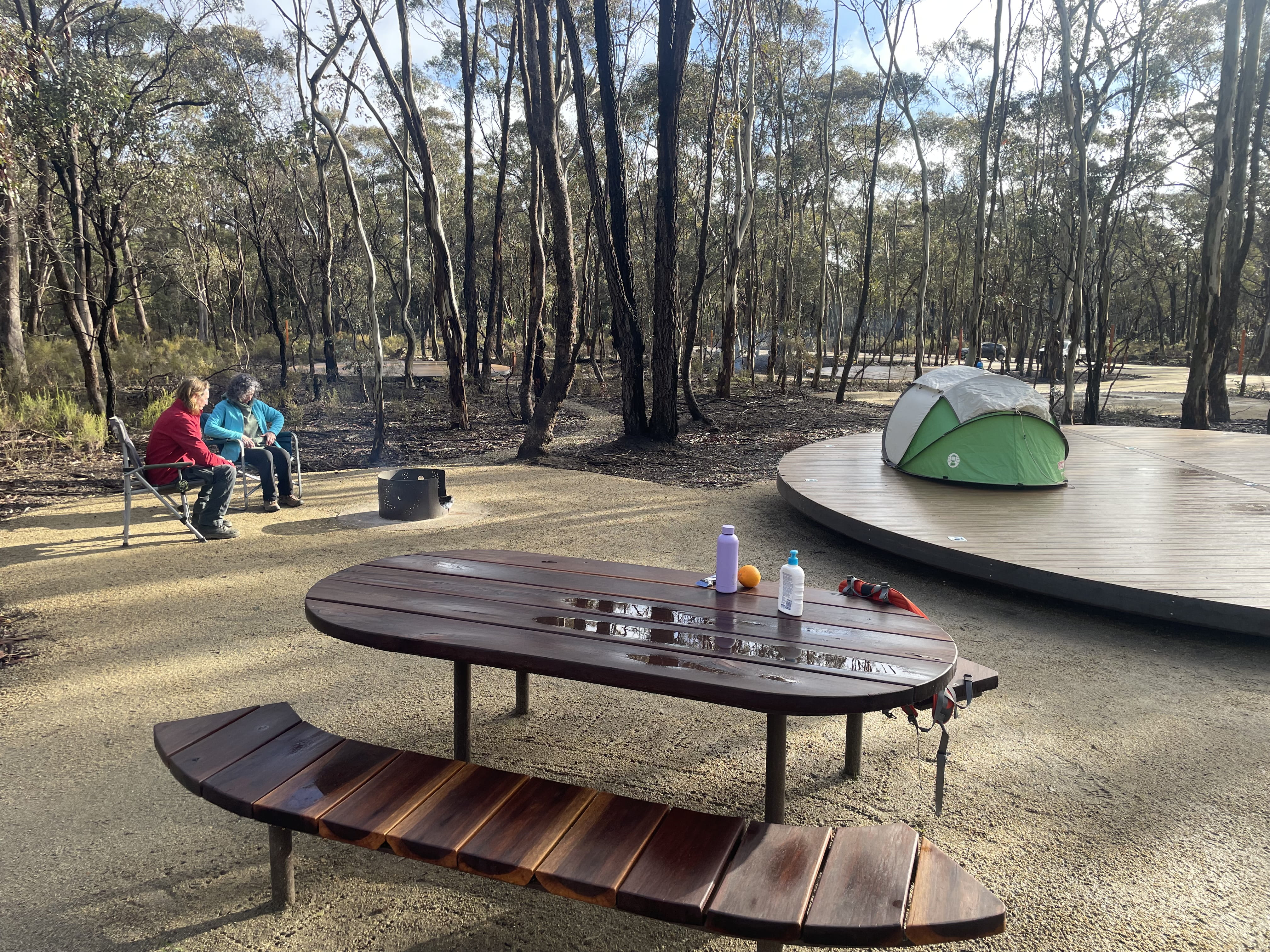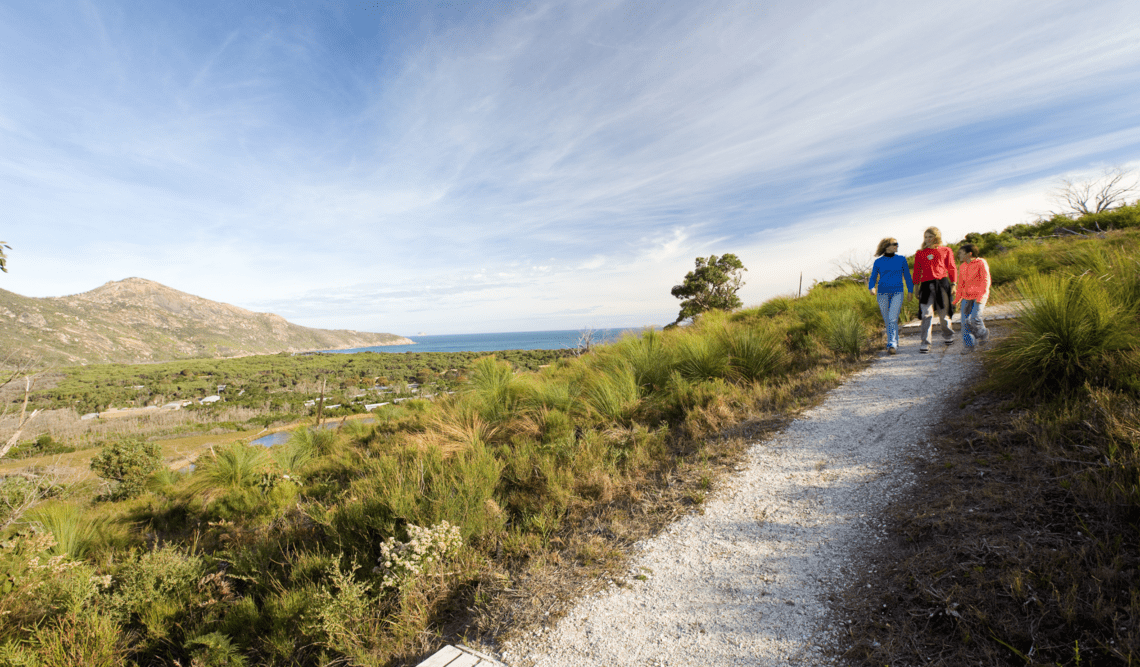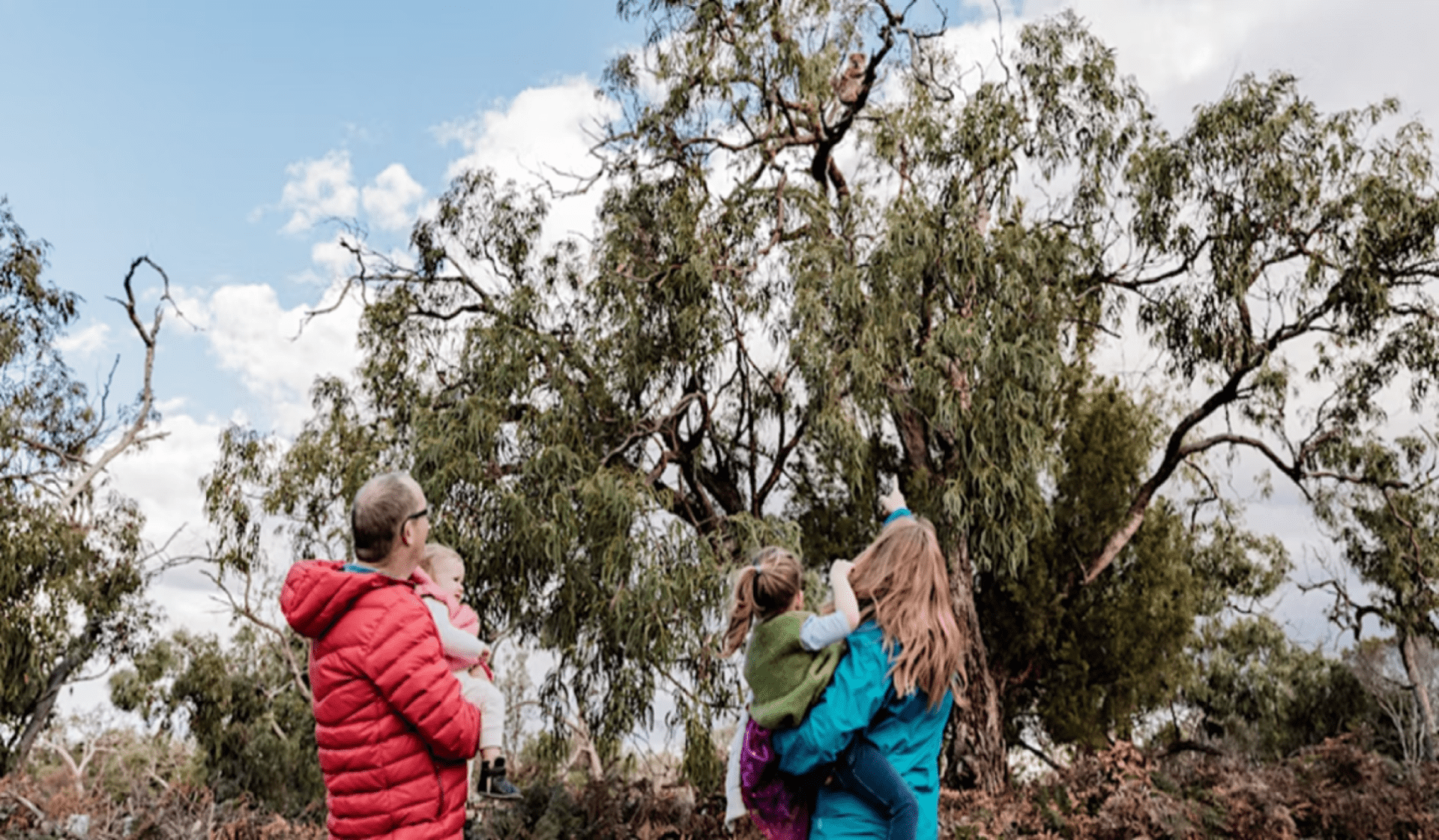Going camping? Our rangers give us the low down
Whether you’re heading to forests, native bushland or the coast, camping is a fun and relaxing way to immerse yourself in nature and explore Victoria.
Escape and enjoy your warm camping evenings, but remember with wet weather conditions are different than usual.
This summer is different. Many places in Victoria have been impacted by recent flood and storm events. Before you head off, research your destination. For more information, visit our Flood and Storm Affected Parks page.
To help you, your friends and your family have a safe, stress-free, and well-planned stay in Victoria’s incredible parks and natural landscapes our rangers have shared their know-how in these handy tips.
Han's tips for planning ahead
Does sleeping under the stars sound like your cup of tea? Even if you already have your camping spot picked out, it's still a good idea to do a little research.
- Remember some roads, parks, and campsites across Victoria have been impacted by flood and weather events and may be closed.
- Be sure to check the Parks Victoria website for up-to-date information before you go. You can find more details on the specific park or campground page, such as park or road closures or alternative routes.
- Find out which camping options are available and whether you need to book a camping spot. Han, a park ranger from Grampians National Park says, “facilities and campground fees vary across the state of Victoria, make sure that you book ahead to avoid disappointment.”
- Want to cook some snags on a campfire? Make sure you check out if your campground allows campfires or what other cooking facilities are available such as stoves or barbecues.
- Thinking of bringing the pooch? Many parks don’t allow your furry friends so make sure you check before you plan your camping holiday! Our dog-friendly camping page is a great place to start.
- Also, check the VicEmergency website and monitor the fire danger rating and and plan accordingly.
Billy's tips for taking out what you bring in
We all want to stay in a clean and tidy park, so it’s super important to dispose of your rubbish properly.
- Rubbish bins are not provided at campgrounds, so be prepared to take all your rubbish home with you. Don’t dump it at the nearest town either – make sure to take all your waste home.
- Hot tip: bring spare plastic bags or a box to store your rubbish in for when you head back home.
- If you’re cooking up a storm on a campfire, don’t be that person that puts their cans and bottles in the fire!
- Make sure you know where the nearest toilets are. Some campgrounds don’t have toilets, so you’ll need to bring a chemical toilet, and use dumping stations. FYI, park toilets aren't rubbish bins either, so please don’t dump rubbish in there!
- Looking for ideas to lessen your impact? Check our plastic free picnics article for more inspiration.
Georgia's tips for setting up your home away from home
We know you can’t wait to be sipping a cold beverage in your camping chair, but here’s a couple of things to take note of before you set up camp:
- Use established campsites where available – it’s the best way to protect beautiful environment that surrounds you.
- Look around for tree risks when you’re setting up camp. Set up your campsite away from trees as wet weather can make trees and branches more likely to fall. Don’t forget to look up!
- Lessen your impact on nature by avoiding building or digging at your campsite.
- Hot tip: Remember the 50-metre rule to keep our waterways clean - camp, wash dishes and set up camp showers 50-metres away from any water (this includes rivers, lakes and the sea!).
- Also beware of our slithery mates! Georgia, a park ranger on French Island says, “snakes are out there and active in the environment and can be located around the perimeter of and will also move through the campgrounds.”
Marcus' tips for firing it up safely
Fire is a big risk to parks, wildlife, and communities. Campfire rules vary from park to park, but all campfires have to comply with Forest Fire Management Victoria's fire restrictions, permits and regulations. If you're not sure what the rules are at your campground, check the campground's page.
- Bring your own firewood. Felling or damaging trees in the park is strictly prohibited, and some campground guidelines do not allow you to collect fallen wood, as this can also be habitat for native wildlife.
- Put out your campfire properly before you go to sleep, using water, not soil. Marcus, a ranger at Kinglake National Park says, “Use a lot of water and mix around the coal - if it’s cool to touch, it’s safe to leave.”
- Remember, on a Total Fire Ban day no campfires and no solid or chemical fuelled barbecues are permitted. If its hot and windy use common sense and don't light a campfire or barbecue.
- Get your fire safety checklist and learn more about fire safety on our campfire safety page.
Ruby's tips to protect and respect
We all love exploring Victoria’s diverse natural landscapes, but we must also make sure we're not causing damage, disrespecting Traditional Owners and Country, or disturbing wildlife.
- Leave habitats and animals undisturbed as much as possible. If dogs are allowed in the park or campground area, make sure to keep them on a leash.
- Human food can harm wildlife, so please don't feed them. Ruby, a ranger at Wilsons Promontory National Park explains “this can make them sick or dependent on humans for food.” They are happier and healthier finding their own food.
- Be a good neighbour! Be considerate of other visitors - being mindful of noise and mess ensures everyone can have a great time in nature.
Check out the camping page to find your perfect campsite.




